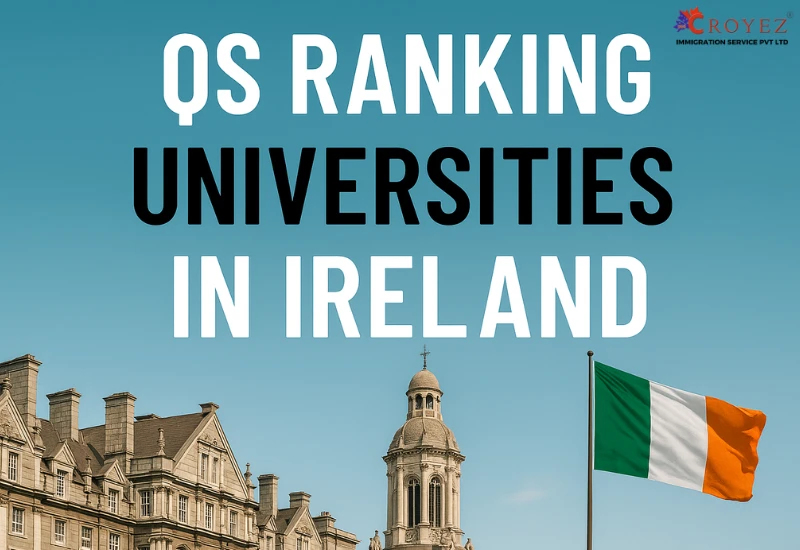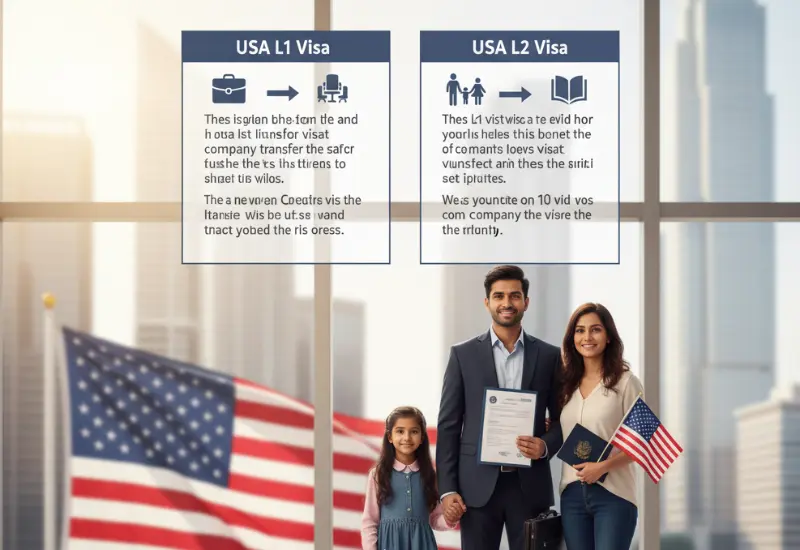Foreign workers who wish to work in Canada require a Labour Market Assessment(LMIA). This document is the primary Canada work permit requirements and this is issued by the Social Development Canada (ESDC). This document allowed Canada job work permits in Canadian companies to fill labor shortages in certain occupations. Here, provide a complete guide to LMIA Exempt work permit in Canada so, read carefully:-
What Does Lmia-Exemption Mean?
LMIA-Exemption means that a Canadian employer is not required to obtain a Labour Market Impact Assessment (LMIA) in order to hire a foreign worker. LMIAs are typically required for employers to hire foreign workers, but there are a number of exemptions to this requirement. Some common LMIA exemptions include:
- International agreements: Foreign workers who are nationals of countries that have international agreements with Canada may be exempt from the LMIA requirement.
- Specific occupations: Certain occupations are exempt from the LMIA requirement, such as professional athletes, religious workers, and teachers.
- Significant benefit to Canada: Employers may be able to obtain an LMIA exemption if they can demonstrate that hiring a foreign worker will bring a significant social, cultural, or economic benefit to Canada.
LMIA exemptions can be beneficial for both foreign workers and Canadian employers. For foreign workers, LMIA exemptions can make it easier and faster to obtain a Canada job work permit . For Canadian employers, LMIA exemptions can save time and money, and can also make it easier to hire foreign workers who have the skills and experience they need. If you are a foreign worker or a Canadian employer who is interested in learning more about LMIA exemptions, you should visit the website of Immigration, Refugees and Citizenship Canada (IRCC).
Types of the LMIA Exemption Work Permit Canada
There are many types of LMIA-exempt work permits in Canada some of the important are as follows:
- International agreements and arrangements: Foreign workers who are nationals of countries that have international agreements with Canada may be exempt from the LMIA requirement. Some examples of these agreements include the North American Free Trade Agreement (NAFTA), the General Agreement on Trade in Services (GATS), and the Comprehensive Economic and Trade Agreement (CETA).
- Intra-Company Transfer (ICT) work permit: This type of work permit is available to employees of multinational companies who are being transferred to a Canadian office of the company. To be eligible for an ICT work permit, the employee must have worked for the company for at least one year in the past three years, and the company must have a permanent establishment in both Canada and the employee's home country.
- Significant benefit exemption: Employers may be able to obtain an LMIA exemption if they can demonstrate that hiring a foreign worker will bring a significant social, cultural, or economic benefit to Canada. This exemption is often used to hire workers in specialized fields, such as healthcare, technology, and education.
- Reciprocal Employment Exemption: The Reciprocal Employment Exemption (REE) is a type of LMIA-exempt work permit that allows foreign workers to work in Canada if Canadians have similar reciprocal work opportunities abroad. This exemption is available to citizens of countries that have reciprocal employment agreements with Canada.
To be eligible for an REE work permit, the foreign worker must:
- Be a citizen of a country that has a reciprocal employment agreement with Canada;
- Have a job offer from a Canadian employer;
- Meet the occupation-specific requirements for the job offer;
- Be able to meet the basic admissibility requirements for Canada.
The Canadian employer must also meet certain requirements, such as:
- Be a legitimate business;
- Have the ability to pay the foreign worker a fair wage;
- Provide the foreign worker with a safe and healthy work environment.
- International Experience Canada Program: The International Experience Canada (IEC) program is a work and travel program for young people from participating countries. The program allows participants to work and travel in Canada for up to 24 months, depending on their nationality.
To be eligible for the IEC program, participants must be:
- Between the ages of 18 and 35 (or 30 for some countries)
- Citizens of a participating country
- Have a valid passport
- Meet the basic admissibility requirements for Canada
The IEC program is a great opportunity for young people to gain international work experience, improve their English or French language skills, and explore Canada. If you are a young person from a participating country, I encourage you to learn more about the IEC program and consider applying.
Here are some tips for choosing a best visa consultant in India for the IEC program:
- Make sure that the consultant is licensed by the Immigration Consultants of Canada Regulatory Council (ICCRC).
- Ask the consultant about their experience with the IEC program.
- Get a clear understanding of the consultant's fees and services.
- Make sure that the consultant is transparent and honest about the application process.
- Get everything in writing, including the consultant's fees and services, as well as the terms of your agreement.
In addition to these three main types of LMIA-exempt work permits, there are a number of other exemptions that may apply to certain foreign workers or situations. For example, foreign workers who are spouses or common-law partners of Canadian citizens or permanent residents are exempt from the LMIA requirement. If you are a foreign worker who is interested in finding out whether you may be eligible for an LMIA-exempt work permit, you should visit the website of Immigration, Refugees and Citizenship Canada (IRCC) or speak to an immigration consultant
Conclusion
The LMIA-exempt work permit is a key that can unlock the door to your dreams of working in Canada. It is a pathway to new opportunities, new experiences, and a new life. If you are a foreign worker who is eligible for an LMIA-exempt work permit, I encourage you to seize the opportunity. It is a chance to start a new chapter in your life, to pursue your passions, and to achieve your goals. If you are a foreign worker who is interested in finding out whether you may be eligible for a Canada work permit requirements, you should visit the website of Croyez Immigration, Refugees and Citizenship Canada (IRCC) or speak to an immigration consultant in Kochi.





